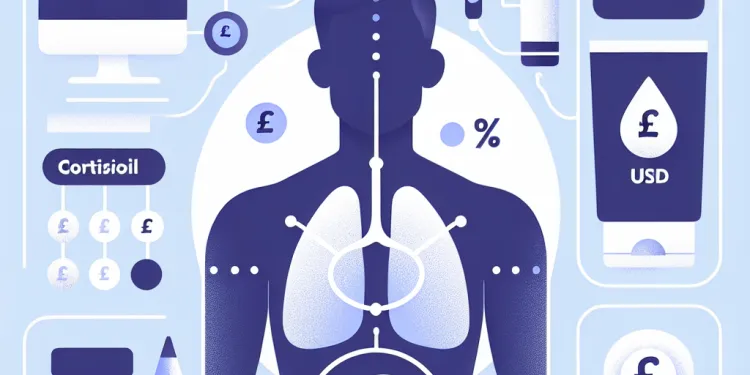
Find Help
More Items From Ergsy search
-
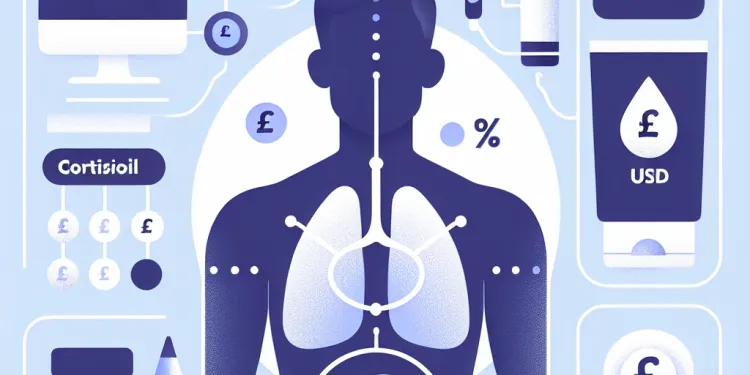
How is cortisol regulated in the body?
Relevance: 100%
-

What role does cortisol play in the body?
Relevance: 72%
-
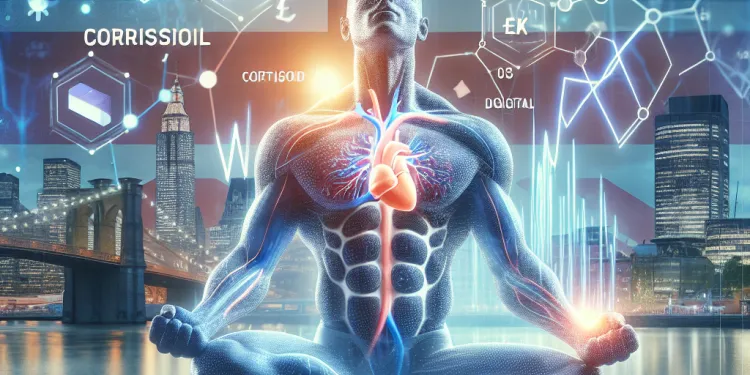
How does cortisol affect the body's stress response?
Relevance: 72%
-

Are there any lifestyle changes that can help regulate cortisol levels?
Relevance: 69%
-

What is cortisol?
Relevance: 65%
-

What is the role of cortisol in metabolism?
Relevance: 58%
-

What factors can influence cortisol levels?
Relevance: 55%
-

What is the relationship between cortisol and the circadian rhythm?
Relevance: 55%
-

Is there a connection between cortisol and the immune system?
Relevance: 54%
-

Can exercise influence cortisol levels?
Relevance: 54%
-

Are there regulations on transporting the body before the funeral?
Relevance: 53%
-

How do cortisol levels differ between acute and chronic stress?
Relevance: 53%
-

What is the normal pattern of cortisol secretion throughout the day?
Relevance: 52%
-

Can diet influence cortisol levels?
Relevance: 52%
-

Can cortisol levels be measured?
Relevance: 52%
-

Can cortisol levels impact mood and mental health?
Relevance: 52%
-

What can low levels of cortisol cause?
Relevance: 51%
-

What can high levels of cortisol cause?
Relevance: 50%
-

How can stress management affect cortisol levels?
Relevance: 50%
-

Are AI body scans reliable?
Relevance: 34%
-

Is the production of ketamine regulated?
Relevance: 33%
-

Are there specific regulations for ground burials in the UK?
Relevance: 32%
-
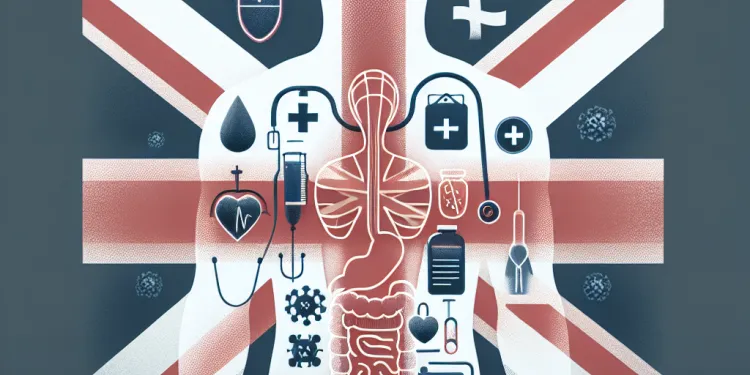
Where is GLP-1 produced in the body?
Relevance: 32%
-

How is the quality of care regulated in care homes?
Relevance: 31%
-

What role do regulatory bodies play in fee transparency?
Relevance: 31%
-

Is salt necessary for the body?
Relevance: 31%
-
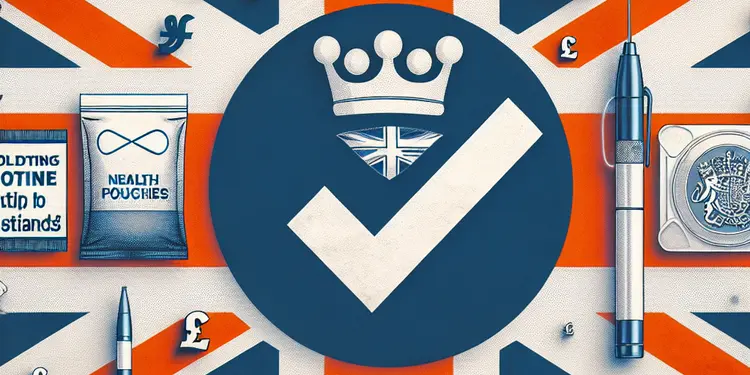
Are nicotine pouches regulated by health authorities?
Relevance: 30%
-

Are online banks like Monzo and Revolut regulated?
Relevance: 30%
-

Are energy prices regulated in the UK?
Relevance: 29%
-
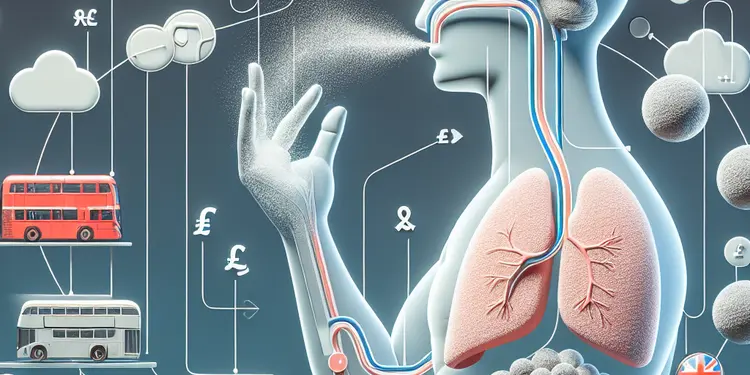
How does the body process salt?
Relevance: 29%
-

What agencies monitor and regulate sewage pollution in the UK?
Relevance: 29%
-

What is Cushing's syndrome?
Relevance: 29%
-

What is the role of a water regulator in my claim?
Relevance: 29%
-

Who regulates the performance and compliance of UK water companies?
Relevance: 29%
-

Where can I find a regulated financial advisor for pension advice?
Relevance: 28%
-

Are there any regulations on the sale of baby sleep pillows?
Relevance: 28%
-

Are there any changes to spousal support regulations in 2026?
Relevance: 28%
-

Does the body store all the fat I consume?
Relevance: 27%
-

Legal Experts Warn of Consequences in Upcoming AI Regulation Bill
Relevance: 27%
-

Calls Grow for Regulation on Buy Now, Pay Later Schemes
Relevance: 26%
Cortisol: An Overview
Cortisol is a steroid hormone produced by the adrenal glands, which are located on top of each kidney. It plays a crucial role in the body’s response to stress, regulation of metabolism, immune response, and maintenance of blood pressure. Understanding how cortisol is regulated is essential for comprehending its impact on health and wellbeing.
The Hypothalamic-Pituitary-Adrenal (HPA) Axis
The regulation of cortisol is primarily governed by the hypothalamic-pituitary-adrenal (HPA) axis. This complex network involves interaction between three endocrine glands: the hypothalamus, the pituitary gland, and the adrenal glands. The HPA axis is the central stress response system and plays a vital role in cortisol regulation.
Initial Stimulation of Cortisol Production
The regulation process begins in the hypothalamus, a small region of the brain that acts as the command centre for the HPA axis. In response to physical or psychological stressors, the hypothalamus releases corticotropin-releasing hormone (CRH) into the bloodstream. CRH then travels to the anterior pituitary gland, which responds by secreting adrenocorticotropic hormone (ACTH).
Action of ACTH on the Adrenal Glands
Once ACTH is released, it travels through the bloodstream to the adrenal glands, signalling them to produce and release cortisol. The adrenal cortex, the outer part of the adrenal glands, is responsible for synthesising cortisol. The release of ACTH and subsequent cortisol production is essential for maintaining homeostasis, particularly in response to stress.
Feedback Mechanism
The regulation of cortisol levels in the body is controlled by a negative feedback mechanism. High levels of cortisol circulating in the bloodstream signal the hypothalamus and pituitary gland to reduce the production and release of CRH and ACTH, respectively. This feedback loop ensures that cortisol levels remain within a healthy range and prevents excessive production.
Circadian Rhythm Influences
Cortisol levels in the body follow a diurnal or circadian rhythm, peaking early in the morning shortly after waking and gradually declining throughout the day. This pattern is regulated by the body’s internal clock, the suprachiasmatic nucleus (SCN), located in the hypothalamus. It helps synchronise cortisol production with daily activities and sleep-wake cycles.
Factors Affecting Cortisol Regulation
Several factors can influence cortisol regulation, including stress, physical activity, illness, and sleep patterns. Chronic stress can lead to dysregulation of the HPA axis, potentially causing elevated or suppressed cortisol levels, which may contribute to various health issues. Additionally, conditions such as Cushing’s syndrome or Addison’s disease are characterised by abnormal cortisol levels due to underlying pathologies.
Conclusion
Understanding how cortisol is regulated in the body provides insight into its vital role in maintaining health and responding to stress. The HPA axis, feedback mechanisms, circadian rhythms, and various external factors all contribute to the complex regulation of this essential hormone.
What is Cortisol?
Cortisol is a hormone made by small glands on top of your kidneys. It helps your body deal with stress, use energy, keep a healthy immune system, and regulate blood pressure. Knowing how cortisol works is important for understanding health and wellness.
How Cortisol is Controlled
Cortisol is controlled by a system called the HPA axis. This system involves three body parts: the hypothalamus, the pituitary gland, and the adrenal glands. The HPA axis helps control cortisol and how the body reacts to stress.
How Cortisol Gets Started
The process begins in a part of the brain called the hypothalamus. When you face stress, the hypothalamus tells the body to release a special hormone called CRH. This hormone travels to the pituitary gland and tells it to release another hormone called ACTH.
How ACTH Works on the Adrenal Glands
ACTH travels in the blood to the adrenal glands. It tells these glands to make and release cortisol. This process is important for keeping balance in the body, especially when stressed.
How Cortisol Levels are Managed
Your body has a system to control cortisol levels called negative feedback. When cortisol levels get too high, the body tells the hypothalamus and pituitary gland to make less CRH and ACTH. This keeps cortisol levels normal.
Cortisol and Daily Patterns
Cortisol levels go up and down during the day. They are highest in the morning when you wake up and get lower by night. This pattern is managed by the body's internal clock, which helps match cortisol with your daily routine.
Things That Affect Cortisol
Many things can change how cortisol works, like stress, exercise, sickness, and sleep patterns. Being stressed all the time can upset the balance of cortisol. Some health problems, like Cushing’s or Addison’s disease, also affect cortisol levels.
Summary
Knowing how cortisol is managed helps us understand its important role in keeping us healthy and managing stress. The HPA axis, feedback systems, daily patterns, and different factors all work together to control this key hormone.
Frequently Asked Questions
What is cortisol?
Cortisol is a steroid hormone produced by the adrenal glands, which play a crucial role in the body's stress response, metabolism, and immune system regulation.
How is cortisol production initiated?
Cortisol production is initiated by the hypothalamus, which releases corticotropin-releasing hormone (CRH) that stimulates the pituitary gland to secrete adrenocorticotropic hormone (ACTH), leading to cortisol release from the adrenal glands.
What role does the hypothalamus play in cortisol regulation?
The hypothalamus regulates cortisol by releasing corticotropin-releasing hormone (CRH), which triggers the pituitary gland to secrete ACTH that stimulates cortisol production from the adrenal cortex.
How does the pituitary gland affect cortisol levels?
The pituitary gland releases adrenocorticotropic hormone (ACTH) in response to CRH from the hypothalamus, prompting the adrenal glands to produce and release cortisol.
What is the role of ACTH in cortisol regulation?
ACTH, or adrenocorticotropic hormone, is released by the pituitary gland and stimulates the adrenal cortex to produce and release cortisol.
What are the adrenal glands, and how do they relate to cortisol?
The adrenal glands are small glands located on top of each kidney. They produce cortisol in response to ACTH from the pituitary gland.
How is cortisol secretion regulated by a feedback loop?
Cortisol secretion is regulated by a negative feedback loop where high levels of cortisol inhibit CRH and ACTH production, thus reducing cortisol levels.
What is a negative feedback loop in the context of cortisol?
A negative feedback loop in cortisol regulation involves cortisol levels influencing the hypothalamus and pituitary to decrease the secretion of CRH and ACTH, reducing further cortisol production.
How do stress levels impact cortisol release?
Stress triggers the hypothalamus to release more CRH, which increases ACTH and subsequently raises cortisol production in the adrenal glands.
What is the circadian rhythm's effect on cortisol?
Cortisol levels follow a circadian rhythm, peaking in the early morning and decreasing throughout the day to a low in the evening.
Can lifestyle factors influence cortisol levels?
Yes, factors such as sleep quality, stress, physical activity, and diet can influence cortisol levels.
What role does sleep play in cortisol regulation?
Sleep affects cortisol by helping to regulate its circadian rhythm; poor sleep can disrupt this rhythm and affect cortisol levels.
How does exercise affect cortisol levels?
Exercise can temporarily increase cortisol levels, but regular physical activity can help regulate the body's overall cortisol production.
What is the relationship between cortisol and metabolism?
Cortisol helps regulate metabolism by influencing how the body uses carbohydrates, fats, and proteins for energy.
How does cortisol affect the immune system?
Cortisol has an anti-inflammatory effect and helps regulate the immune response, but chronic high levels can suppress immune function.
What are the effects of chronic high cortisol levels?
Chronic high cortisol levels can lead to health issues such as weight gain, high blood pressure, type 2 diabetes, and reduced immune function.
What conditions are associated with abnormal cortisol levels?
Conditions like Cushing's syndrome (high cortisol) and Addison's disease (low cortisol) are associated with abnormal cortisol levels.
How can cortisol levels be measured?
Cortisol levels can be measured using blood, urine, or saliva tests.
Can diet impact cortisol levels?
Yes, a balanced diet with adequate nutrients can help manage cortisol levels, while excessive caffeine and sugar might increase them.
What techniques can help manage stress and cortisol levels?
Stress management techniques such as meditation, yoga, deep breathing exercises, and sufficient sleep can help regulate cortisol levels.
What is cortisol?
Cortisol is a chemical in our body. It is a "stress hormone." It helps us when we are worried or scared.
When we are in trouble, cortisol helps us feel strong and ready to react. It is like an alarm system.
If you want to know more about cortisol, you can talk to a doctor. You can also look at pictures or watch videos to help you understand better.
Cortisol is a hormone. It is made by the adrenal glands in your body. Cortisol helps your body handle stress, use energy, and stay healthy.
How does the body start making cortisol?
Your brain controls how your body makes cortisol. First, a part of your brain called the hypothalamus releases a special message. This message is a hormone called CRH. CRH tells another part of your brain, the pituitary gland, to do something.
Then, the pituitary gland sends out another message. This message is a hormone called ACTH. ACTH goes to your adrenal glands. These adrenal glands make cortisol for your body.
If you find it hard to understand, try reading slowly or ask someone to help. You can also use audiobooks or apps that read text aloud.
What does the hypothalamus do to control cortisol?
The hypothalamus is a part of your brain. It helps keep your body in balance.
Cortisol is a hormone in your body. It helps you handle stress.
The hypothalamus tells your body to make more or less cortisol.
Using pictures or videos can help you learn more about the hypothalamus and cortisol. Asking a teacher or helper can also be useful.
The hypothalamus tells the body to make cortisol. It does this by sending out a signal called CRH. This signal goes to another part of the brain called the pituitary gland. The pituitary gland then sends out a signal called ACTH. This signal tells the adrenal glands to make cortisol.
How does the pituitary gland change cortisol levels?
The pituitary gland is a small part in your brain.
It helps control hormones in your body.
One hormone it helps control is called cortisol.
Cortisol helps your body feel good and manage stress.
If the pituitary gland works too much, it can make too much cortisol.
If it doesn't work enough, it can make too little cortisol.
Tools like picture charts or storyboards can help explain this.
Talk to a doctor to learn more about hormones and the pituitary gland.
Your body has a small part called the pituitary gland. When it gets a message from another part called the hypothalamus, it sends out a special chemical called ACTH. This tells the adrenal glands to make and release a hormone called cortisol.
What does ACTH do with cortisol?
ACTH helps control cortisol levels. Cortisol is a hormone in your body. Think of ACTH as a helper signal. It tells your body to make more cortisol. Cortisol helps you deal with stress and stay healthy.
If you want extra help to understand, you can:
- Use a dictionary to look up words.
- Ask someone to explain it in a different way.
- Watch a simple video about ACTH and cortisol.
ACTH is a hormone. It has a long name: ad-reno-corti-co-tropic hormone. This hormone comes from a small part of the brain called the pituitary gland.
ACTH tells another part of the body, called the adrenal cortex, to make a special chemical called cortisol.
Cortisol helps the body in many ways, like giving us energy and helping us deal with stress.
If you want to learn more or need help understanding, you can ask a teacher, parent, or use a picture to better understand these ideas.
What are the adrenal glands, and how do they relate to cortisol?
The adrenal glands are small organs in your body. They sit on top of your kidneys.
The adrenal glands make a hormone called cortisol. Cortisol helps your body respond to stress, gives you energy, and keeps you healthy.
Tip: Use pictures or videos to learn more about the adrenal glands and cortisol. They can help you understand better.
The adrenal glands are small. They sit on top of each kidney. They make a chemical called cortisol. They do this when they get a message from another gland called the pituitary gland.
If you find reading hard, try using a ruler or your finger to follow the words. You can also listen to the text if there is an option.
How does the body control the release of cortisol?
The body controls cortisol, a stress hormone, using a feedback loop. Here's how it works:
1. **Cortisol is made.** The body makes cortisol to help deal with stress.
2. **Signals are sent.** If there is too much or too little cortisol, the brain sends signals to balance it.
3. **Making stops or starts.** These signals tell the body to make more or less cortisol.
You can use tools like pictures, videos, or diagrams to better understand this process. It's like a see-saw where the brain and body keep things balanced.
Cortisol is a chemical in your body.
When there is too much cortisol, your body stops making CRH and ACTH.
This helps to lower the amount of cortisol.
If you find this hard to understand, you can use pictures or videos to help. Talking to someone else can also be useful.
What is a negative feedback loop for cortisol?
A negative feedback loop helps keep things in balance.
Cortisol is a hormone made by the body. It helps with stress and other things.
When there is too much cortisol, the body gets a signal to make less. This slows down cortisol production.
If cortisol is too low, the body makes more.
This loop helps keep cortisol levels just right.
To understand better, you can:
- Look at pictures or diagrams
- Ask someone to explain it to you
A negative feedback loop in the body helps control cortisol, a hormone. When there is a lot of cortisol, it tells two parts of the brain, the hypothalamus and the pituitary, to make less CRH and ACTH. This stops the body from making more cortisol.
Here's how you can understand it better:
- Cortisol: A chemical in the body that helps deal with stress.
- Hypothalamus and Pituitary: Parts of the brain that help control how much cortisol is made.
- CRH and ACTH: Chemicals that tell the body to make more cortisol.
- Negative Feedback: A way for the body to know when to stop making more of something.
Supportive tools to help understand this:
- Use simple diagrams to show how the feedback loop works.
- Read aloud with someone who can help explain difficult words.
How does stress affect the release of cortisol?
Feeling stressed can make your body release a chemical called cortisol. This happens because your body is getting ready to face something challenging.
Cortisol is like a helper. It gives you energy and helps you focus. But too much can make you feel worried or tired.
To feel better, you can try:
- Taking deep breaths
- Talking to someone you trust
- Doing something fun or relaxing
When you feel stressed, your brain tells your body to make something called CRH. This leads to the making of more ACTH. Then, your body makes more cortisol, which comes from your adrenal glands.
How does the body's clock change cortisol?
Cortisol is a hormone in your body.
Cortisol levels go up and down during the day. They are highest in the morning when you wake up. They go down during the day and are lowest in the evening.
You can use tools to help you remember:
- Use a picture or chart to show how cortisol levels change during the day.
- Ask someone to help you understand this, like a teacher or a friend.
Can the way we live change how much cortisol is in our bodies?
Yes, many things can change how much cortisol is in our body. How well we sleep, how stressed we are, how much we move around, and what we eat all make a difference.
How does sleep help control cortisol?
Sleep is important for controlling a hormone called cortisol. Good sleep helps keep cortisol levels steady. But if you don't sleep well, it can make your cortisol levels go up and down in the wrong way.
How does exercise change cortisol levels?
Exercise can change the amount of cortisol in your body. Cortisol is a hormone that helps manage stress.
Here is how exercise can affect cortisol:
- Short exercise: Doing short exercises like running or jumping can make cortisol go up for a little while. This is normal and can help you have energy for exercise.
- Long exercise: With regular and longer exercises, like walking for a long time, cortisol can go down. This helps your body feel less stressed in the long run.
Here are some tools to help you:
- Keep a journal: Write down how you feel before and after exercise. This can help you see how exercise changes your stress levels.
- Use a timer: Set a timer when you exercise to help you plan short and long exercises.
Exercise can make cortisol levels go up for a short time. But doing exercise regularly can help control how much cortisol the body makes in the long run.
How do cortisol and metabolism work together?
Cortisol is a hormone in your body.
Metabolism is how your body uses food for energy.
Cortisol helps control your metabolism.
If you are stressed, cortisol can change your metabolism.
Learning Tip: Use pictures or videos to help understand tough ideas.
Cortisol is a chemical in your body. It helps with using food for energy. It works with things like sugar, fat, and protein to give you energy.
What does cortisol do to the immune system?
Cortisol is a hormone in your body.
When you feel stress, your body makes cortisol.
Cortisol can make your immune system weaker.
This makes you get sick more easily.
It's important to relax and feel calm.
Things like deep breaths or talking to someone can help.
Cortisol is a chemical in our body. It helps stop swelling and keeps us from getting sick. But if we have too much cortisol for a long time, it can make our body less able to fight germs.
To help understand and remember this information, try using pictures or mind maps. Reading with a helper or using audiobooks can also make it easier to learn.
What happens if you have high cortisol for a long time?
Having too much cortisol for a long time can be bad for your health. It can make you gain weight, get high blood pressure, have type 2 diabetes, and make it harder for your body to fight off sickness.
What happens when cortisol levels are not normal?
Sometimes, people can have too much or too little of something called cortisol in their bodies.
When there is too much cortisol, it is called Cushing's syndrome.
When there is too little cortisol, it is called Addison's disease.
If you want help with reading, you can try using pictures to understand better. Also, you can ask someone to read with you or use an app that reads text aloud.
How do we check cortisol levels?
Cortisol is a hormone in our body. We can check its levels through:
- A saliva test. This means a doctor takes some of your spit.
- A blood test. This means a doctor takes some of your blood.
- A urine test. This means a doctor checks your pee over 24 hours.
Ask your doctor which test is best for you. It's okay if you need help understanding the tests. Tools like pictures and videos can help explain things. You might also use a guide or an app to remind you how to prepare for the test.
You can check how much cortisol is in your body with tests. These tests use your blood, pee, or spit.
Can food change cortisol levels?
What you eat can change how much cortisol is in your body. Cortisol is a hormone. It helps you feel ready in the morning and sleepy at night.
Eating healthy foods like fruits, vegetables, and drinking water is good. Avoid too much sugar and caffeine. They can make you stressed.
Try to eat at the same time every day. This can help your body know how to use energy.
Tools that might help:
- Use a food diary to track what you eat.
- Try meditation or deep breathing to relax.
Eating healthy can help keep cortisol levels steady. Too much caffeine and sugar can make cortisol go up.
How can you feel less stressed and lower stress hormones?
Here are some simple ways to feel better:
- Breathe slowly and deeply.
- Do some gentle exercise like walking.
- Listen to calm music.
- Talk to a friend.
- Try drawing or painting.
Tools that can help:
- Use apps for relaxing sounds.
- Watch videos for calming exercises.
Here are some ways to feel less stressed:
- Try to relax by meditating. This can help calm your mind.
- Do yoga. It helps your body and mind feel better.
- Take deep breaths. This can make you feel calmer.
- Make sure you sleep enough. Sleep helps your body feel good.
Useful Links
This website offers general information and is not a substitute for professional advice.
Always seek guidance from qualified professionals.
If you have any medical concerns or need urgent help, contact a healthcare professional or emergency services immediately.
- Ergsy carfully checks the information in the videos we provide here.
- Videos shown by Youtube after a video has completed, have NOT been reviewed by ERGSY.
- To view, click the arrow in centre of video.
- Most of the videos you find here will have subtitles and/or closed captions available.
- You may need to turn these on, and choose your preferred language.
- Go to the video you'd like to watch.
- If closed captions (CC) are available, settings will be visible on the bottom right of the video player.
- To turn on Captions, click settings .
- To turn off Captions, click settings again.
More Items From Ergsy search
-

How is cortisol regulated in the body?
Relevance: 100%
-

What role does cortisol play in the body?
Relevance: 72%
-

How does cortisol affect the body's stress response?
Relevance: 72%
-

Are there any lifestyle changes that can help regulate cortisol levels?
Relevance: 69%
-

What is cortisol?
Relevance: 65%
-

What is the role of cortisol in metabolism?
Relevance: 58%
-

What factors can influence cortisol levels?
Relevance: 55%
-

What is the relationship between cortisol and the circadian rhythm?
Relevance: 55%
-

Is there a connection between cortisol and the immune system?
Relevance: 54%
-

Can exercise influence cortisol levels?
Relevance: 54%
-

Are there regulations on transporting the body before the funeral?
Relevance: 53%
-

How do cortisol levels differ between acute and chronic stress?
Relevance: 53%
-

What is the normal pattern of cortisol secretion throughout the day?
Relevance: 52%
-

Can diet influence cortisol levels?
Relevance: 52%
-

Can cortisol levels be measured?
Relevance: 52%
-

Can cortisol levels impact mood and mental health?
Relevance: 52%
-

What can low levels of cortisol cause?
Relevance: 51%
-

What can high levels of cortisol cause?
Relevance: 50%
-

How can stress management affect cortisol levels?
Relevance: 50%
-

Are AI body scans reliable?
Relevance: 34%
-

Is the production of ketamine regulated?
Relevance: 33%
-

Are there specific regulations for ground burials in the UK?
Relevance: 32%
-

Where is GLP-1 produced in the body?
Relevance: 32%
-

How is the quality of care regulated in care homes?
Relevance: 31%
-

What role do regulatory bodies play in fee transparency?
Relevance: 31%
-

Is salt necessary for the body?
Relevance: 31%
-

Are nicotine pouches regulated by health authorities?
Relevance: 30%
-

Are online banks like Monzo and Revolut regulated?
Relevance: 30%
-

Are energy prices regulated in the UK?
Relevance: 29%
-

How does the body process salt?
Relevance: 29%
-

What agencies monitor and regulate sewage pollution in the UK?
Relevance: 29%
-

What is Cushing's syndrome?
Relevance: 29%
-

What is the role of a water regulator in my claim?
Relevance: 29%
-

Who regulates the performance and compliance of UK water companies?
Relevance: 29%
-

Where can I find a regulated financial advisor for pension advice?
Relevance: 28%
-

Are there any regulations on the sale of baby sleep pillows?
Relevance: 28%
-

Are there any changes to spousal support regulations in 2026?
Relevance: 28%
-

Does the body store all the fat I consume?
Relevance: 27%
-

Legal Experts Warn of Consequences in Upcoming AI Regulation Bill
Relevance: 27%
-

Calls Grow for Regulation on Buy Now, Pay Later Schemes
Relevance: 26%


